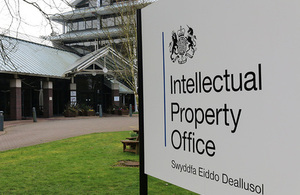Statement to parliament: Tyres and vehicle safety
Colleagues across the House have expressed concern about the potential dangers posed by ageing tyres. This is also a matter of great concern to the government, and following my statement to the House of 23 November 2018, I want to update the House further on the measures we are taking to address it.
Colleagues will recall that in 2013 the government issued guidance advising bus operators against fitting tyres over 10 years old to the front axles of their vehicles. This has proven extremely effective. Since June 2017 136,263 vehicles have been checked by cat annual test and 82 have been found to be non-compliant, a rate of 0.06%.
However, we have been determined to go further. In November 2018 the government updated the Driver and Vehicle Standards Agency guidance on maintaining roadworthiness, to the effect that tyres of 10 years of age or older should not be used on the front or steering axles of heavy goods vehicles as well as buses and coaches.
All DVSA encounters with GB heavy vehicles, including buses and coaches, identified as using older tyres will be followed up. Between 23 November and 25 January, DVSA carried out 7,500 enforcement checks and found 14 vehicles using older tyres. This reinforces the picture already built up of very low levels of infringement. The changes to maintenance best practice now provide a clear basis for referring cases to Traffic Commissioners when guidance has been disregarded.
The DfT and its agencies continue to work together to ensure vehicle operators understand how to maintain the safety and roadworthiness of their vehicles, including their tyres, and to enforce any non-compliance.
This strengthening of the roadworthiness guidance followed amendments to the MOT and annual test requirement in 2018 to tighten the control of the use of any tyres exhibiting deep cuts to the tread area. These changes, which apply to all road vehicles subject to MOT tests, were developed in response to new evidence obtained from a DfT funded collision investigation. This indicated that structural damage to tyres was possible due to corrosion caused by water ingress.
As a result, from 20th May 2018 any vehicle found with tyres that have deep cuts will fail their MOT test. This is another example of how the DfT continue to make improvements to vehicle maintenance requirements based on available evidence, so as to improve roadworthiness and safety of vehicles on UK roads.
In addition to these measures, the government has also commissioned pioneering new research to strengthen our understanding of the effect of age on the integrity of road vehicle tyres. No other country in the world has done work of this nature – we are pushing the boundaries of technical research in order to inform policy and ensure the safety of all road users.
The present work has been commissioned by the Department for Transport and is led by the UK’s Transport Research Laboratory. The project has enlisted expertise from a leading laboratory in the United States, Smithers Rapra, to undertake testing and analysis to find out more about the structural qualities of those tyres. Thirty one used tyres of different ages, taken from the UK market, have been sent to this laboratory. The sample tyres are all from a single manufacturer and have been assembled so that accurate comparisons can be made. This analysis will be used to address the question of how ageing affects tyres’ integrity. I understand that it will be the first of its kind to be published using this methodology.
The government is committed to evidence-based policymaking, in order to ensure the safety of all road users. Stakeholders and the public expect the government to act on complete and appropriate evidence, and decisions would otherwise risk legal challenge by affected parties. As I informed the House on November 23, we expect the outcome of this research to be reported in the spring. It will be used alongside existing evidence to inform government policy.

